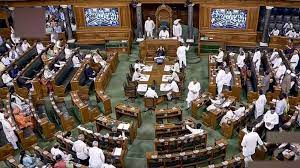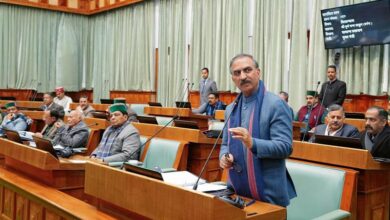In the Lok Sabha, the Delhi Ordinance Bill 2023 on Control of Services in the Capital was passed; the opposition staged a walkout
The Lok Sabha has approved the Government of National Capital Territory of Delhi (Amendment) Bill, 2023. Today in the House, the Statutory resolution against the Delhi services legislation was lost by voice vote.
“The central government has always provided services. A SC interpretation read: From 1993 to 2015, there were no Chief Minister fights. There were no conflicts since all governments sought to satisfy the needs of the people. If there is a need to serve, there is no reason to fight. But they’ll fight if they want to be in charge. Amit Shah, the Union Minister of Housing, spoke before the Bill was approved by voice vote.

An ordinance that gave the Centre jurisdiction over the bureaucrats in Delhi is being proposed to be replaced by the Delhi Ordinance Bill. Amit Shah presented the bill to the Lok Sabha on Tuesday. It takes the place of an ordinance that was passed in May and essentially nullified a ruling by the Supreme Court that gave the elected government of Delhi jurisdiction over all services with the exception of police, land, and public order.
Home Minister Amit Shah said earlier today that the Parliament has the authority to pass legislation on any matter pertaining to Delhi’s National Capital Territory. The Supreme Court’s ruling that the Parliament has the authority to enact legislation on any matter pertaining to the National Capital Territory of Delhi is referenced in this ordinance, according to Amit Shah. Even prominent figures like Jawaharlal Nehru, Sardar Patel, and Dr. Ambedkar opposed full statehood for Delhi after Independence, he said.
The Delhi Ordinance Bill is what?
A week after the Supreme Court ruled that the Delhi government has control over the administration and control of civil servants, except in matters relating to public order, police, and land, the Centre introduced the National Capital Territory of Delhi (Amendment) Bill, 2023, which makes significant changes to the ordinance it promulgated on May 19.
The proposal to create a permanent body called the “National Capital Civil Service Authority” to make decisions about the postings and control of public workers was one such major disagreement that infuriated the state government. The Bill aims to give the Lieutenant Governor ultimate power.
Another significant modification gave the Centre authority over appointments to Delhi’s statutory commissions and tribunals. The AAP opposed the law because it gives the Centre more authority when the government works via the Lieutenant Governor, something they have long complained about.







